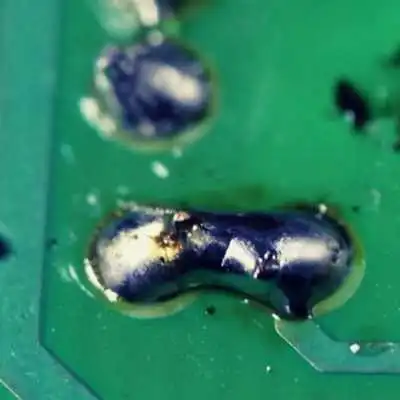Your air conditioning system is made up of a variety of components, one of which is the AC capacitor. The AC capacitor is responsible for providing electrical power to the fan motor and compressor. If your AC capacitor goes bad, it can cause your air conditioner to stop working correctly or even fail. Let’s take a closer look at what happens when an AC capacitor goes bad and how you can diagnose the problem.
If you’re looking for a multimeter that can test bad capacitors then click here!
What Are AC Capacitors?
AC capacitors are electrical components that are used to store and release electrical energy. They act as reservoirs, allowing electricity to flow through them at the appropriate times while storing any excess power.
This is crucial in applications where a steady current is needed. AC capacitors can make the supply of electricity more efficient, as they often interact with other parts of an electrical system in order to regulate the overall flow of power.
It’s no surprise that AC capacitors are widely used in residential and commercial settings alike – from ceiling fans and air conditioners to furnaces and refrigerators. When you flip a switch for one of these appliances, it’s likely that somewhere inside an AC capacitor is helping regulate the flow of electricity for maximum efficiency.
What Happens When AC Capacitor Goes Bad | The Signs
A capacitor is a device that stores electrical energy and is essential in many electronic circuits. If your capacitor isn’t working correctly, this can lead to system failures or even complete shutdowns. It’s critical to be able to identify the signs of an impending failure in order to prevent any damage from occurring. Let’s take a look at what might indicate that your capacitor is about to fail.
1. Physically Damaged Components
One of the most apparent signs of a failing capacitor is physical damage to its components. This could include discoloration, charring, cracking, or other deformities on the outside of the casing or any part of its internal wiring.
Any visible signs like these should be addressed immediately as they can quickly lead to further problems if not fixed in time.
2. Diminished Performance
If you are noticing diminished performance from your electronic device while using it, this could be another sign that your capacitor is failing. This could manifest itself as unexplained system slowdowns or unexpected shutdowns when you try to use certain features of the device.
If you notice any performance drop-off when using your device, it’s worth checking out whether it could be related to a failing capacitor in need of repair or replacement. If you wanted to learn Fluke vs klein then,you can click here.
3. Patched Up Solder Joints
The solder joints that connect different components within an electronic circuit board are notoriously fragile and prone to breaking down over time with regular use. If you notice that any solder joints have been patched up with extra solder or tape, then this could be another sign that something is wrong with your capacitor and needs attention right away before it causes more significant problems down the road.

Diagnosing an AC Capacitor Problem
The only way to accurately diagnose an AC capacitor problem is through testing with a multimeter tool. A multimeter measures voltage and resistance in electrical circuits. An HVAC technician will use a multimeter to measure both the capacitance value and voltage between terminals on the capacitor.
After this compare them with manufacturer specifications. If there’s a significant difference between the measured values and expected values, then it’s likely due to a failing or worn-out capacitor. I made the list of best budget multimeters you can check out.
Replacing an AC Capacitor
Suppose it turns out that your air conditioner’s problems are due to a faulty AC capacitor. In that case, it needs to be replaced immediately in order for your system to function correctly again. Replacing an AC capacitor involves:
- Draining any remaining charge from the old one.
- Disconnecting it from its terminals.
- If necessary, replace it with a new one with similar ratings or higher before reconnecting it back into place and charging up the new unit with electricity.
This process should always be done by an experienced HVAC professional in order to ensure the safety and proper installation of the new unit.
Bottom Line:
So, what happens when the AC capacitor goes bad? A malfunctioning AC capacitor can be highly detrimental to your home’s cooling system. This makes knowing what happens when an AC Capacitor goes bad crucial for homeowners. By understanding some of the signs that might indicate that something is wrong with yours. So, you can get ahead of any potential issues before they become more serious problems down the line.
Additionally, having an HVAC technician come in and perform regular maintenance checks on your and other components within your home’s cooling system. This includes measuring capacitance values—which can help prevent future problems from arising altogether. These proactive steps will help keep you and your home cool during those hot summer days!
